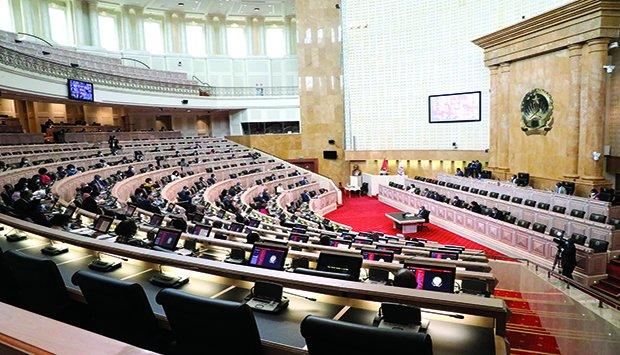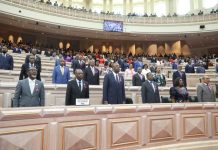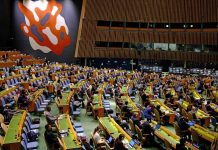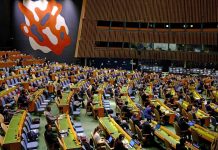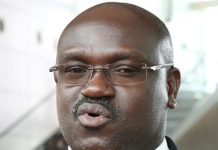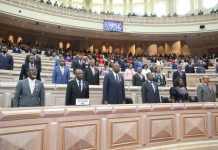Africa-Press – Angola. The deputies to the National Assembly unanimously approved, on Thursday (24), the proposal for a Legislative Authorization Law that authorizes the President of the Republic, as holder of the Executive Power, to legislate on the general principles relating to the organization and application of the indication of salary scales and remuneration subsidies or supplements for the Civil Service.
The Executive plans to make adjustments to the basic salaries of the Civil Service in a range of 4 to 102 percent. The lowest category of second-class cleaning aid will be implemented by 102 percent, going from 33,598 to 67,807 kwanzas.
For the highest category of the main administrative official non-technical personnel group, there will be an increase of 11 percent, from 88,577 kwanzas to 98,321 kwanzas. For the average technician, the increase was 12 percent, absolute increases ranging from 10,216 kwanzas to 14,783 kwanzas, and for the other groups an increase of 4 percent is proposed.
In order to ensure that the lowest base salaries undergo greater increases, the index table for non-technical and average technical staff will be adapted, as well as the transition of assistant teachers of the 6th, 5th and 4th year, to the same index of the assistant professor of the third tier. Holders of political positions, leaders and chiefs will not be increased.
In this regard, the Minister of Public Administration, Labor and Social Security, Teresa Dias, explained that the Executive remains focused on promoting the stability and diversification of the economy, as well as restoring the purchasing power of the population, in general, and of the employee. public, in particular, above all, on the supply side and goods and services.
“We sought, together with the Ministry of Finance, and after hearing the workers’ representative associations, a balanced solution for the salary adjustment of the Civil Service that meets three fundamental challenges: first, the creation of a corridor to admit the increase in the national salary; second, the maintenance of a prudent level of public expenditure; and, finally, that the base salaries of the lowest value of the group of non-technical
personnel , be adjusted to the higher values”, he explained. non-technical, according to the official, continues to be made up of ten salary levels, with a progression coefficient of 20 points and indices varying between 400 and 580, against 220 and 580 for the previous one.
In the framework of the trade union associations’ demands, Teresa Dias informed that the Executive plans to introduce amendments to the Decree under analysis, among others, and include the subsidy to support pedagogical innovation and scientific research with a proposed rate of 22 percent.
“We will have the medical specialization guidance allowance that has been expanded to health as a whole and the rate has been increased to 15 percent of the base salary, as opposed to the current 5 percent. percent to 7 percent,” he added.
The President of the Republic requested legislative authorization from the National Assembly to amend the provisions of Presidential Legislative Decree No. remuneration of the Public Service.
In the use of this Legislative Authorization, the President of the Republic, as Holder of the Executive Power, must, in the field of Public Administration, define the principles to which the structure of the indicia and salary tables obey, approve the indicia structure of the salary tables of the Civil Service , as well as subsidies or salary supplements.
Public Powers
The deputies to the National Assembly also approved, in general and unanimously, with satisfaction, the draft law approving the Extra-contractual Regime for Public Authorities and the Holders of their Bodies or Officials and Public Agents.
Essentially, this draft law establishes an “ex-novo” regime on non-contractual civil liability of the State and other public entities, that is, the obligation that falls on an entity involved in an activity of a public nature that has caused damage to (outside the context of a contractual relationship)
The approval of this bill is part of the process of readjusting the policies outlined by the Executive for the Justice sector, the current constitutional and infra-constitutional reality that the Republic of Angola is experiencing.
The Minister of Justice and Human Rights, Francisco Queiroz, said that the law is timely, contributes greatly to the Democratic State of Law and is in line with the concerns of the Executive and the entire State apparatus, in the field of defense of freedom, guarantees and the fundamental rights of the citizen.
Parliamentarians praised the Executive’s initiative. Deputy Mihaela Webba (UNITA) said that there is a need to comply with what the Constitution says, appealing for protection based on the Law.
Deputy Alexandre Sebastião André (CASA-CE) was satisfied, stating that the law is important to mitigate the excesses of powers of public bodies. “With this law, we are going to reduce the excesses of power and impunity that hang over public officials,” he stressed.
According to the parliamentarian, you can have many important laws like these, but if there is no justice to exercise sovereign functions, they are worthless, so he considered that it is necessary to strengthen the courts so as not to fall into impunity.
For Vicente Pinto de Andrade, from the MPLA, the country already has a set of laws that support a new Angola and defended ethics in the public sector. This draft law aims to adapt the procedural rules on administrative litigation to the legal-constitutional reality and the realization of the fundamental rights and freedoms of citizens enshrined in the Constitution, and constitutes a step in the materialization of the Executive’s commitment, assumed in the National Development Plan 2017 -2022, especially the deepening of the Public Administration Reform, as provided for in the Justice and Law Reform Program.
National Anti-Doping Agency
The proposed Anti-Doping Law in Sport was also unanimously voted on. The approval will allow the creation of the National Anti-Doping Agency in the country. The approval and application of this diploma will contribute to the observance of the principles of ethics and truth in national sport, resulting in the regulation of the use of prohibited substances and the preservation of the health of sports practitioners.
The Law will also harmonize the legal regime for the fight against doping with the Constitution of the Republic of Angola, the International Convention against Doping in Sport and the World Anti-Doping Code, as well as establish the legal regime against doping in sport. , adopting the norms and principles of the World Anti-Doping Code, applicable in the Angolan Internal Law.
Sports practitioners, as well as all those covered by the doping ban who participate in official sports competitions, regardless of nationality, will be obliged to submit to doping control, under the terms of the law and complementary legislation.
At the legislative initiative of the President of the Republic, as the holder of the Executive Power, the Draft Law on Anti-Doping in Sport harmonizes the ordinary legislation in force with the International Convention against Doping in Sport and the World Anti-Doping Code, as well as the adjustment to the Constitution of the Republic of Angola and to the social, cultural and national sports reality.
National Police with new badges
The proposal for a Law to change the National Police Posts and Badges was unanimously approved and will allow the first and second general commanders to have badges differentiated from the other officers.
The change arises from the fact that the second commander-general bears the badges of chief commissioner, the same as the other chief commissioners, who do not exercise the position, such as the inspector general of the National Police and the commanders of the specialized police.
In general, the proposed Laws on the Right to Popular Action and the Right to Petition were also approved, which aim to strengthen the exercise of rights, freedoms and guarantees of Angolan citizens. The diplomas, which aim to strengthen the exercise of citizenship, were approved without votes against and without abstentions. Regarding the Popular Action law, it is a proposal by the executive and constitutes a step in the materialization of the Executive’s commitment, assumed under the National Development Plan 2017-2022, especially in the deepening of the Public Administration Reform.
Plenary fails proposal
With 118 votes against, 38 in favor and no abstentions, the National Assembly rejected the request of the UNITA Parliamentary Group. This political party intended to include and discuss the issue of the strike of higher education teachers in the country.
For More News And Analysis About Angola Follow Africa-Press

